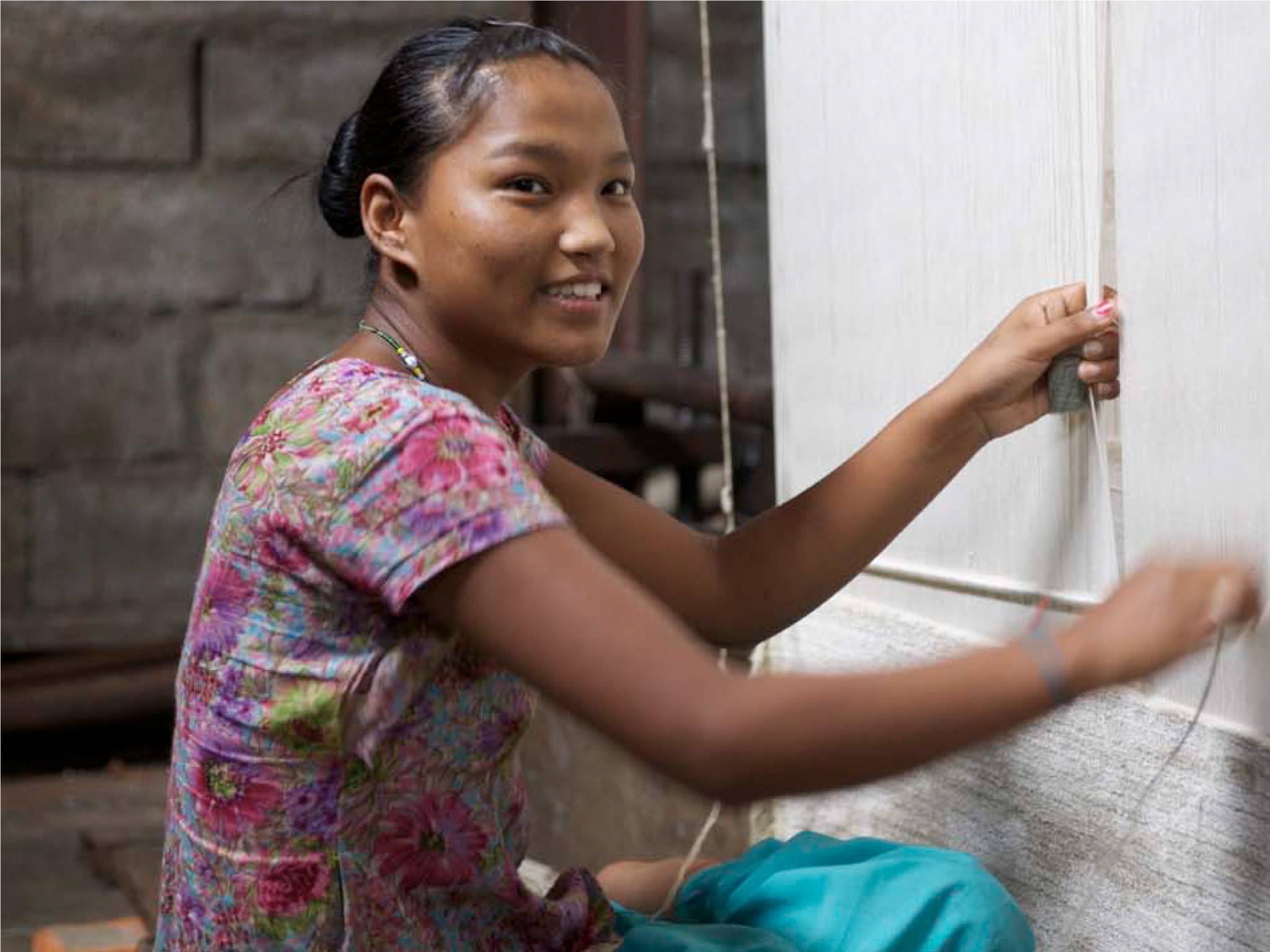SUSTAINABILITY IN PRACTICE
'The longevity of a product, and especially a hand-made product, makes it by definition sustainable. It is not mass produced, doesn't have a short shelf life with the need to replace it every few years, which would result in increased and unnecessary waste'
Sustainability is a critical issue in the hand-knotted rug industry in Nepal, as it not only affects the environment but also the livelihoods of the workers who produce these rugs. The industry relies on traditional techniques and natural materials, such as wool and silk, but the demand for cheaper, synthetic alternatives is putting pressure on the industry to change.

At Knots Rugs, we are committed finding ways to improve our environmental performance and reduce any negative impact on the environment. We design, source, and produce premium quality products that will stand the test of time. A traditional hand knotted wool & silk rug stands tall against the environmental impact of built in obsolescence found in many mass market, mechanically produced products. They are incredibly durable, will age gracefully and can be used for many years, thus reducing post-consumer waste.

Another important aspect of sustainability in the hand-knotted rug industry is preserving traditional techniques and skills. In Nepal, rug making is a rich cultural tradition passed down from generation to generation. To ensure that this tradition continues, organisations are working to provide education and training programs for young rug makers, helping them to build the skills they need to carry on the tradition.
A hand-knotted rug represents the ancient art of weaving- the rug industry in Nepal has its roots in the exodus of Tibetan communities after the invasion by the Chinese. Upon their arrival in Nepal, these families turned to this knowledge to forge a new industry to support their families and from it we have the industry as it is today. When we create our rugs, it starts with the design, then the choosing of the colours, which is a process we share with our production team in Nepal. From there, the creation of the cads and then the graphs for the loom. Then the hand carding of the wool, the ballers, spinners, the weavers knotting by hand, the washing, drying, finishing and carving. Handmade rugs avoid the waste and pollution that factory made products create, as well as creating a product where each one is in its own way, completely unique. All these processes, every step of the way, represent an industry where everything is done by hand rather than using machines.
The processes of rug making within these communities are inextricably linked to a further definition of sustainability as ‘that which enhances the health and welfare of people’. The work generates income for the communities and their families and, most importantly, keeps this self-sustaining, ancient, weaving tradition alive. It is also one of the only industries that provides opportunities for women in their families and communities. Children are schooled and parents are provided with day care. It generates work in the rural communities with no other income stream.
Knots Rugs partners with Label Step, who constantly monitor the environmental impact of the rug industry and seek new ways to create an ever more sustainable product. They develop projects to teach the art of weaving out into the rural communities. They are assiduous in creating educational campaigns to stop migrant workers leaving for dangerous working conditions and the possibility of exploitation. And they ensure there is no child labour.

Overall, the hand-knotted rug industry in Nepal is at a critical crossroads, and the decisions that are made today will have a significant impact on its future. By promoting sustainability and preserving traditional techniques and skills, the industry can ensure that it remains viable for generations to come.

For more information on Label STEPS work in Nepal please visit: label-step.org
More Journal Posts
Collections
Choosing a HandKnotted Rug: A Luxury Buyer’s Guide for 2026
How to decide on the best rug for your space
Shows
Knots Rugs at Decorex 2025 Artist Collaborations & Craft
Each autumn, Decorex gathers the design world in London. This year Knots Rugs returns with new artist collaborations and the quiet power of handmade design — a celebration of texture, craft and the beauty of what lasts.



